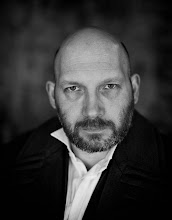 The very lovely Carol Hightshoe recently accepted my short story Whisperthief for publication in the rather splendid ezine Sorcerous Signals, due to appear in October this year (and it will also appear in print in its sister publication Mystic Signals).
The very lovely Carol Hightshoe recently accepted my short story Whisperthief for publication in the rather splendid ezine Sorcerous Signals, due to appear in October this year (and it will also appear in print in its sister publication Mystic Signals).The story is part of what I frequently (and perhaps rather pretentiously) refer to as The Shining Cities Sequence – a series of stories set at the mythical end of the world – which currently consist of a grand total of four published or accepted, (The Glass Cage/ What Dread Words/ All That Grows/ Whisperthief) one still looking for a home (Pale Nations of the Dead) and at least three at the ‘where the hell does this go now’ stage (none of which currently have titles) and one ‘orphan story’ (The Bone House) which is thematically and stylistically linked to the others.
Of all the stories I have written in the last while, the Shining Cities tales are among my favourites, possibly because I rather enjoy writing them. This is not to say that the stories themselves are light and fluffy pieces packed with witty one liners (quite the reverse, if anything, coming as they do from the darkest part of the doom ‘n’ gloom aspect of my psyche) but rather because the creation of them gives me a lot of pleasure. Their basic set up is rather a grab bag of influences (although very much in the shadow of Clark Ashton Smith’s masterly Zothique stories) mixing together sword and sorcery, Lovecraftian cosmic horror, elements of the comedia del arte and anything else that takes my fancy at the time.
More than that, I tend to make them up as I go along. I know that, as a creator of the fantastic, there are certain ‘rules’ that my fiction should obey within their own framework (although these ‘rules’ are, by definition, rather elastic and open to interpretation) but sometimes it’s more important for a writer to enjoy his own work than to worry too much about pleasing others. Again, this is not to say that the stories lack either internal logic or narrative structure (at least I hope they don’t) but rather that they give me a certain freedom in their creation.
It’s a radical thought, I know, but works upon the principle that if you don’t enjoy your work then the chances are that no one else will either. In part it’s about chasing the muse, or allowing the muse to take you where it will.
It’s also to do with the fact that I find it difficult to tailor my imagination to strict parameters (I recently tried to write a story aimed at a very specific anthology which fell apart after two pages simply because I couldn’t get my initial idea to alter itself sufficiently). Not that there is anything wrong with chasing the market – some writers do it extremely well and are capable of creating great work in virtually any genre (the brilliant Roy Thomas, for instance) - unfortunately, I’m not sure I’m one of them.
Of course as a writer it’s both selfish and potentially damaging to your work to please no one but yourself, but the base line should always be ‘is this a story I want to write?’ or perhaps ‘is this a story I want to read?’ and if the answer to either (or preferably both) of those question is Yes then there is a good chance that both you and your audience will enjoy it.


No comments:
Post a Comment